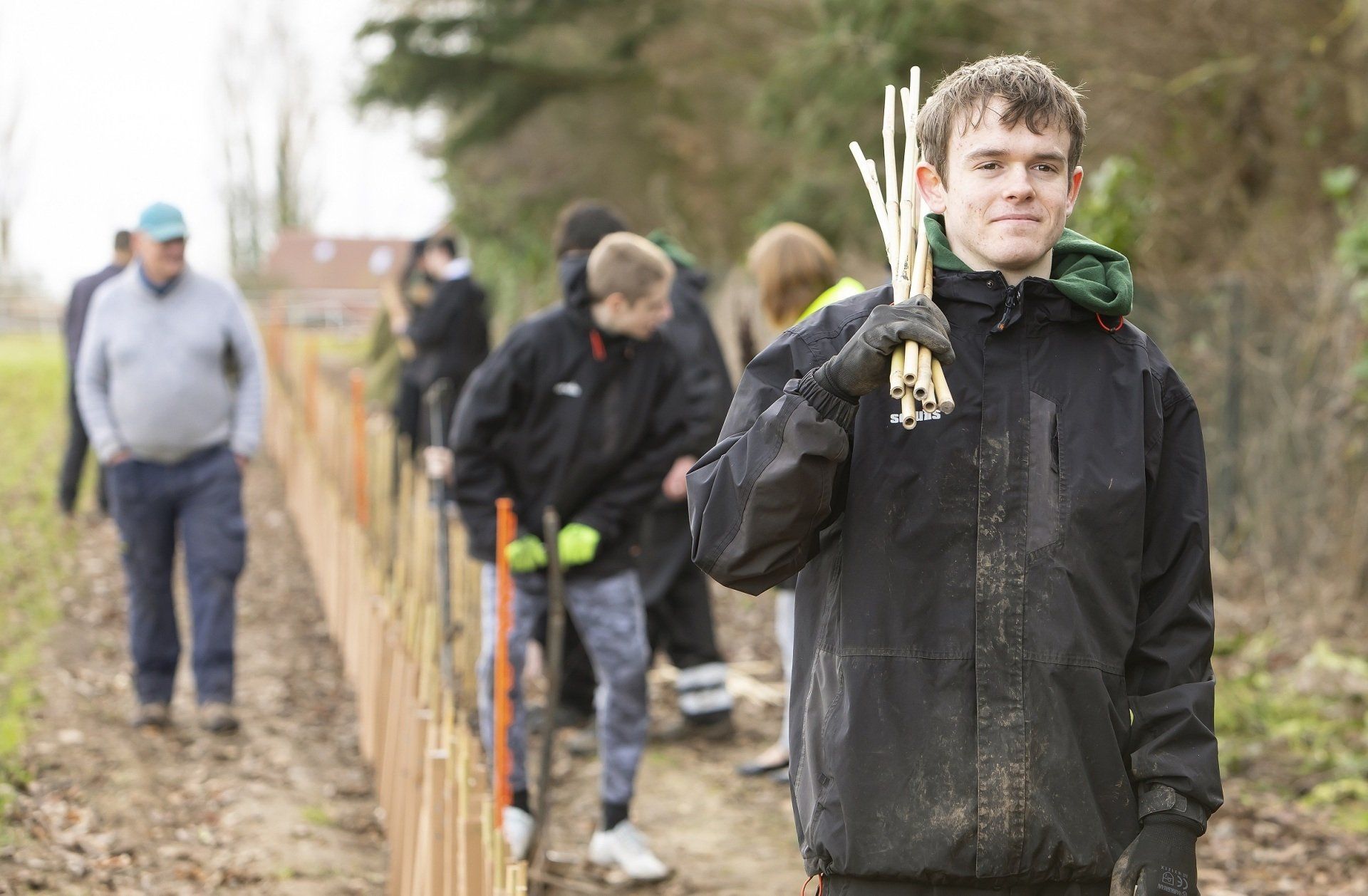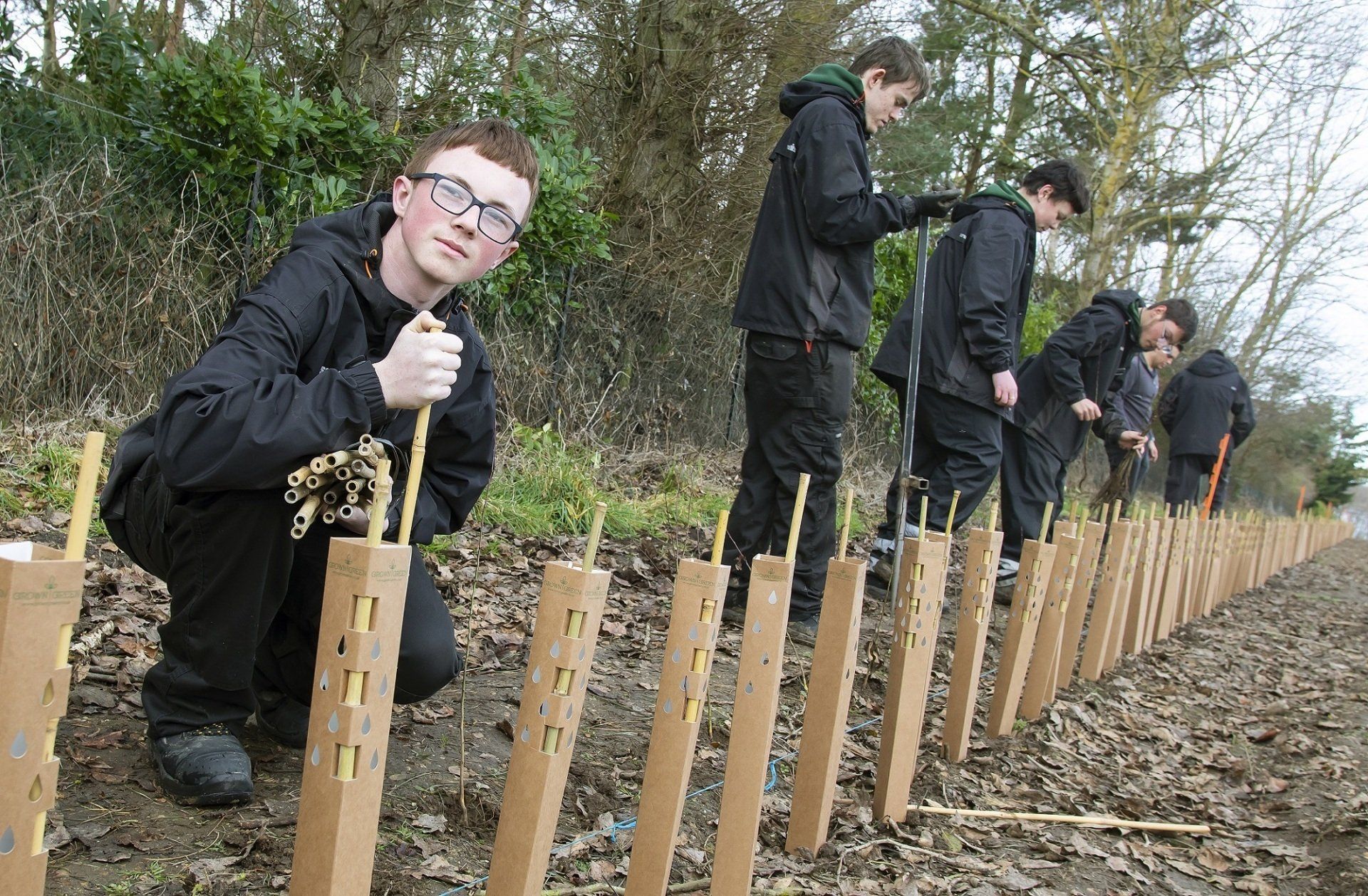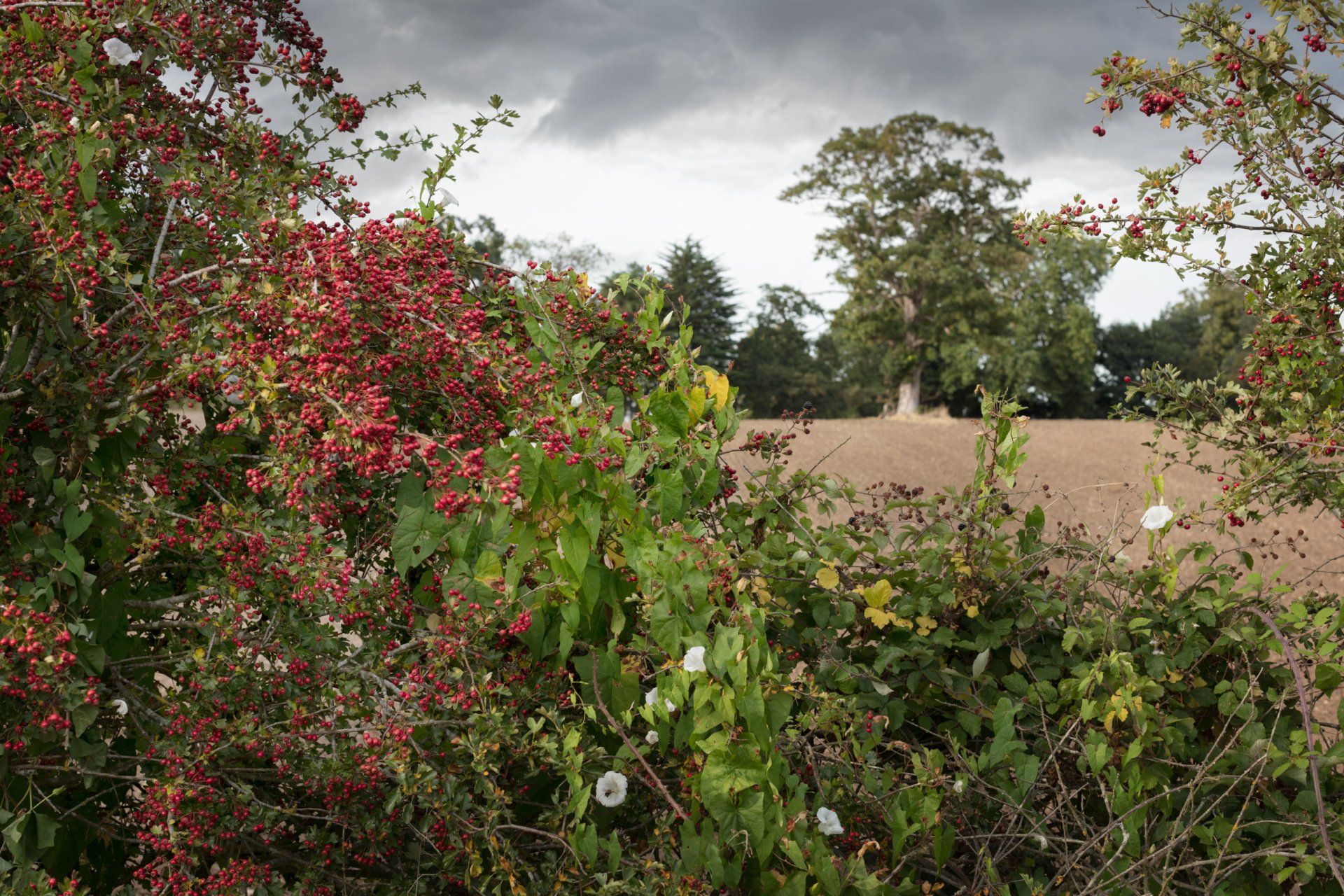Trees - Planting in the Community
A dynamic tree planting project in North East Essex and Suffolk is empowering young people with autism, ADHD and learning difficulties to gain paid employment in the field of conservation.
Market Field Grows are on track to plant a staggering 100,000 trees, as well engaging and in a variety of other nature-based projects.
Naomi Andrews is from the Charity and tells WildEast of her aspirations to inspire similar groups to follow suit.

Many of the young people we work with are offered ‘voluntary’ roles; in other words doing the same job as paid their counterparts. Think about what that might do for your self-esteem, for your feelings of self worth, if you were asked to do something similar? Why would you get up and out every day?
Here at Market Field Grows we strongly believe our young people deserve the opportunity of gaining paid employment, and that it can be found though collaborations with local people, landowners, farmers and businesses. We are extremely proud of what we have so grown so far, both in terms of the charity itself, our participants' confidence, and when it comes to the great outdoors. It's a win win.
We were recognised as a charity back in August 2020, with the aim of helping young people with autism, ADHD and learning difficulties access education, work experience and employment. To do this we created Market Field Grows, a 'conservation enterprise' that works alongside local conservation organisations, charities and landowners to provide paid work for those who traditionally find it difficult to access.

Our first major project saw us working with The Big Green Internet, whose aim it is to plant 60,800 trees between December 2021 and April 2022. We have one full-time team member, our horticulture team leader, and we employ seven young people with a learning disability, autism and ADHD. Each day a team of two work alongside our team leader to plant trees, and in doing so create much-needed hedgerows and wildlife corridors. We plant up to 800 whips per day.
We have further projects booked in for the summer, which include;
- Rewilding a balancing pond on a small housing development. Sanctuary Homes approached Market Field Grows to create a space that will bring nature onto people’s doorsteps.
- Working with the Head Gardener of Beth Chatto, to create a planting scheme that focuses on native species, designed to encourage creatures and birds.
- Building four miles of bug/beetle banks on a local farm. Market Garden Grows were asked back after successfully helping to plant 23,000 trees on their land this winter.
- The creation of a food forest to support learning and visits from local schools. Working with an individual who has recently acquired 3 acres of land that is presently just thistles and grassland. The perimeter will remain as scrub, with the centre being turned over to the seven-layer food forest principle.

To date, our income has been generated through charitable donations and company sponsorship. Moving forward, having demonstrated our ability to deliver services to a high level, we will be working on a contract basis and paid for our time.
We continue to seek collaborations and partnerships in north east Essex and Suffolk over the summer and in November 2022 we will recommence our planting work with a target of 100,000 trees. This means we have the opportunity to expand our reach across two teams, and employ 12 young people.
Our breakthrough work and project has the potential to change the lives of many young people and see large swathes of our countryside returned to the wild. It's an incredibly worthwhile endeavour.
The sad thing is that only 5.8% of people with a learning disability, autism or ADHD will find and sustain paid employment during their lifetime. 94 out of 100 college leavers in this category have no prospect of a purposeful future past full time education. Where else in society is this accepted, or not even spoken of?
The Executive Head and team at the Hope Learning Community, which is formed of five special needs schools and colleges, realised something needed to be done and that change was long overdue. Hence the creation of this charity.

WildEast Blog

Powered by LocaliQ
Follow Us
SIGN UP FOR NEWS & UPDATES
Newsletter Sign Up
Thank you for signing up to our newsletter.
Please try again later.
Privacy / Terms & Conditions / Sitemap
